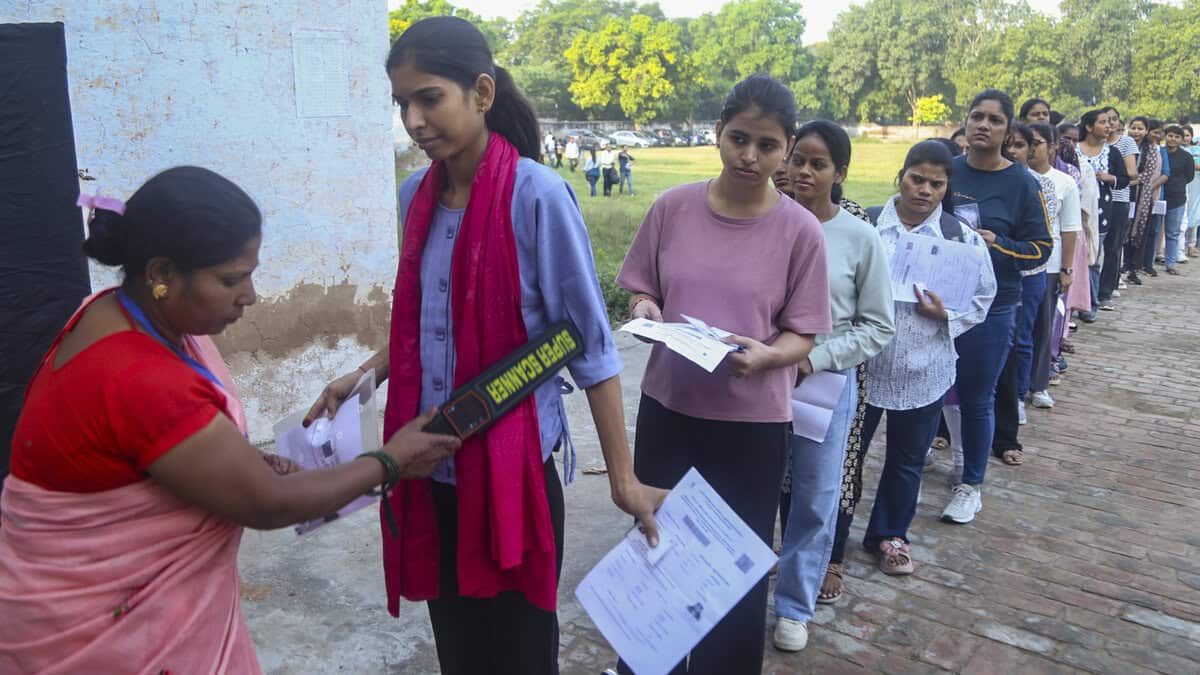MIAMI (AP) — More than 200,000 Salvadorans who have lived more than two decades in the United States can legally remain another 18 months, the Department of Homeland Security said Friday in one of the Biden administration’s final acts on immigration policy.
In explaining its determination, DHS said that the extension is due to “environmental conditions in El Salvador that prevent individuals from returning.”
WATCH NOW: Colorado community braces for possible mass deportations under Trump
The decision is the Biden administration’s latest in support of Temporary Protected Status, which he has sharply expanded to cover about 1 million people. TPS faces an uncertain future under Donald Trump, who tried to sharply curtail its use during his first term as president.
Congress created TPS in 1990 to prevent deportations to countries suffering from natural disasters or civil strive, giving people authorization to work in increments of up to 18 months at a time.
About 1 million immigrants from 17 countries are protected by TPS, including people from Venezuela, Haiti, Honduras, Nicaragua, Afghanistan, Sudan and Lebanon. Salvadorans are one of the largest beneficiaries, having won TPS in 2001 after earthquakes rocked the Central American country.
WATCH NOW: Senate Republicans speak about Laken Riley Act on detaining undocumented immigrants accused of some crimes
TPS for Salvadorans was to expired in March 2025 and was extended until Sept. 9, 2026.
Trump and his running mate, JD Vance, suggested they would scale back the use of TPS and policies granting temporary status as they pursue mass deportations. During his first administration, Trump ended TPS for El Salvador but was held up in court.
The TPS designation gives people legal authority to be in the country but it doesn’t provide them a long-term path to citizenship. They are reliant on the government renewing their status when it expires. Conservative critics have said that over time, the renewal of the protection status becomes automatic, regardless of what is happening in the person’s home country.
DHS said the extension of TPS for 234,000 Salvadorans that currently are TPS beneficiaries is based on geological and weather events. Significant storms and heavy rainfall in 2023 and 2024 continued to affect areas heavily impacted by earthquakes in 2001.
In the last months advocates have increased pressure on the Biden administration to ask for TPS extensions for those who already have it, and to protect people from other countries, like Guatemala and Ecuador.
“This extension is just a small victory,” said Felipe Arnoldo Díaz, an activist with the National TPS Alliance. “Our biggest concern is that after El Salvador, there are countries whose TPS are expiring soon and are being left out, like Venezuela, Nepal, Sudan, Nicaragua, and Honduras”.
The money that Salvadorans send home is a major economic support for the Central American country, potentially complicating efforts to end TPS for an ally of the U.S. Trump has had warm relations with El Salvador President Nayib Bukele, who worked closely with him on preventing illegal immigration to the U.S. Remittances amount to about $7.5 billion a year.
Bukele is immensely popular, largely because his heavy-handed security efforts have eviscerated the country’s street gangs.
In March 2022, El Salvador’s gangs killed 62 people in hours, prompting its congress to allow a “state of exception” for Bukele to crack down, suspending some constitutional rights and granting more police powers. More than 83,000 people have been arrested since, most jailed without due process.
El Salvador ended 2024 with a record low 114 homicides. In 2015, El Salvador had 6,656 homicides, making it one of the world’s deadliest countries.
For José Palma, a 48 year-old Salvadoran who has lived in the U.S. since 1998, the extension means he can still work legally in Houston. He is the only in his family with temporary status; his four children were born U.S. citizens and his wife is a permanent resident. If TPS was not extended he could be deported and separated from the rest of the family.
“It brings me peace of mind, a breath of fresh air. That’s 18 more months of being protected,” Palma said. “It offers me stability”.
Palma, who works as an organizer at a day laborer organization, sends about $400 a month to his 73-year-old mother, who is retired and does not have any income.
___
Associated Press writers Marcos Alemán in San Salvador, El Salvador, and Rebecca Santana, in Washington, contributed to this report.
















































